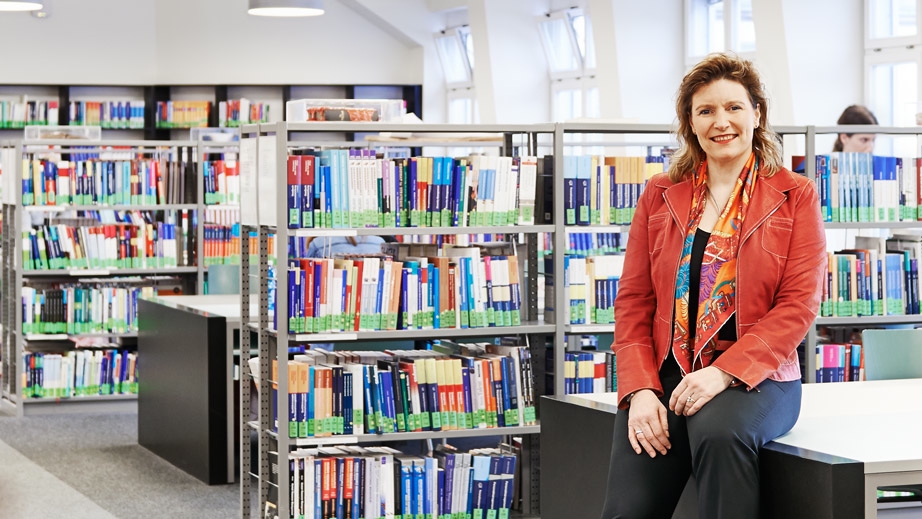
Brain City Berlin Ambassador: Prof. Dr. Birgit Felden (Berlin School of Economics and Law)
Business Administration Department
Birgit Felden has lived in Berlin for ten years alongside her hometown of Cologne and explains what makes the capital city so attractive as a science hotspot.
She is both an entrepreneur and professor. She firstly founded consulting firm TMS in Cologne and then the Institute for Entrepreneurship, SMEs and Family Business at the Berlin School of Economics and Law.
What does Berlin, the hotspot for science, mean for you?
For me, Berlin is the ideal mix of young, curious students and creative, motivated colleagues. My partners here in Berlin are very open. The government is based here, and the city is dynamic, growing and has an exciting society. That’s very attractive for me. Here I get everything I need to be able to work successfully.
What part do you enjoy most?
The combination of practice and theory, particularly in the research area of applied science. Here, people don’t just sit researching in their ivory towers, but rather they bring their findings straight into businesses. I’ve been an entrepreneur for many years now and know what research results are needed for.
What goals do you pursue in your teaching job?
I want to make scientific discoveries tangible for my students and have just completed a comprehensive project on company succession. We set up the website nachfolge-in-deutschland.de to get young people interested in the topic of succession. It was so well received that the Federal Ministry of Economy will be funding our activities for a further three years.
Why is the issue so important?
In Germany, there are constantly some 100,000 companies that are on the brink of succession. Fewer than half of these will stay in the family. This means that another solution needs to be found for the other half of those companies.
Do you collaborate with other universities and companies?
Yes, with both. In Berlin there is a special institute for applied research geared towards collaborative research in universities of applied sciences. As part of this, I worked on a project with Beuth University and the Alice-Salomon-Hochschule respectively. These were great interdisciplinary projects and included collaboration with foreign entrepreneurs. And for each research project we set up an advisory board consisting of entrepreneurs to bring practical impetus into the project.
What are your plans for the future in Berlin?
I have the pleasure of running a degree course for entrepreneurs in the city. It really is a great deal of fun and I enjoy the entrepreneurial freedom at the university. I also want to help Berlin to not just be seen as a hip entrepreneurial city, but also as a strong hub for SMEs. I always hear it said that Berlin doesn’t have any SMEs. But this isn’t true! We are currently conducting a study about family companies in Berlin. We’ve looked at around 800 companies altogether and both we – and politicians – can draw exciting insights from that.